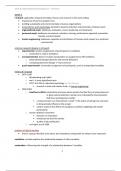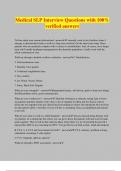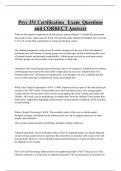Samenvatting
Summary - Work & Organizational Psychology Pt. 1 (P_BARORPS)
This document contains a concise summary of the Work & Organizational Psychology course, taught at Vrije Universiteit Amsterdam. This summary contains lecture notes, as well as some further explanations from the book where needed. Note: This is only Part 1 of the course (Chapter 1-10).
[Meer zien]







